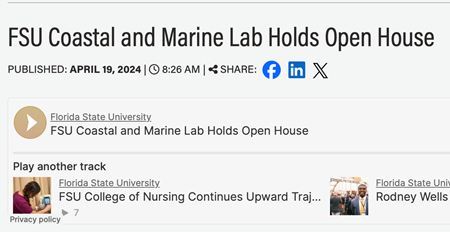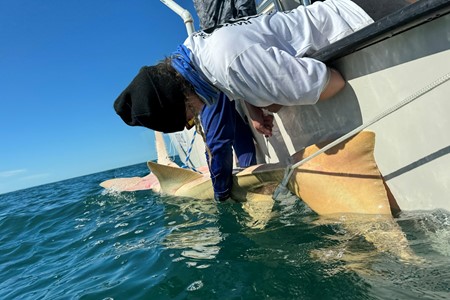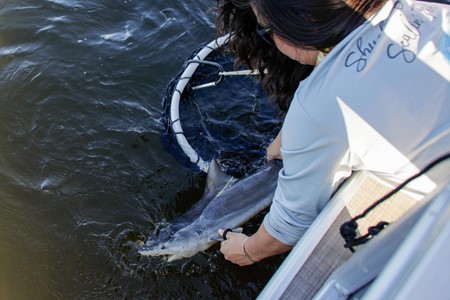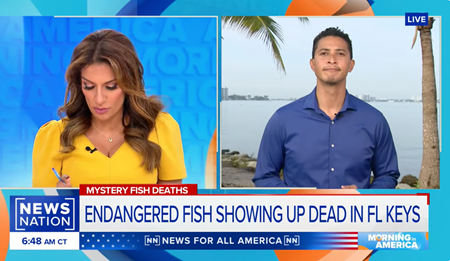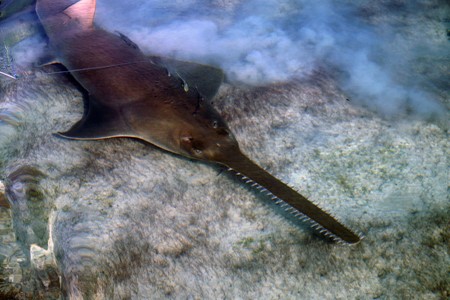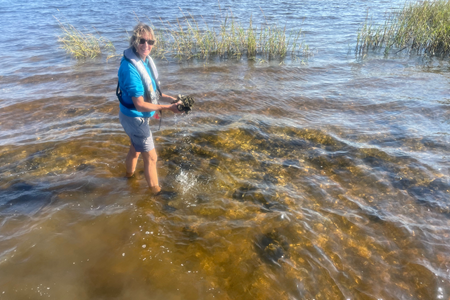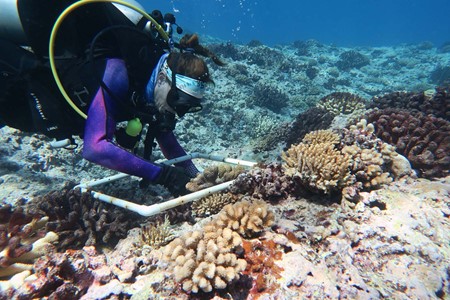Bringing back the sawfish Florida adopted protections in 1992 and the U.S. population of sawfish was the nation’s first native marine fish listed under the Endangered Species Act in 2003. By that time, the fish were only found in pockets of Southwest Florida, said Dean Grubbs, associate director of research and a research professor at Florida State University’s Coastal and Marine Laboratory.
Hope, then heartbreak, as first ‘spinning’ sawfish dies in Tampa Bay
“It’s distressing to see the animals dead and dying,” said Dean Grubbs, the associate director of research at Florida State University’s Coastal and Marine Laboratory. Grubbs is also a member of the sawfish recovery team and was on the boat last week when the crew caught the healthy sawfish.



